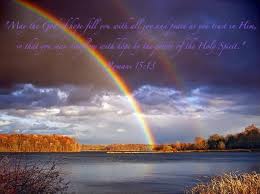A. W. Tozer Chapter Three: A Divine Attribute
 Chapter 3: A Divine Attribute: Something True About God
Chapter 3: A Divine Attribute: Something True About God
“Majesty unspeakable, my soul desires to behold Thee. I cry to Thee from the dust.
Yet when I inquire after Thy name it is secret. Thou art hidden in the light, which no man can approach unto. What Thou art cannot be thought or uttered, for Thy glory is ineffable. Still, prophet and psalmist, apostle and saint have encouraged me to believe that I may in some measure know Thee. Therefore, I pray, whatever of Thyself Thou hast been pleased to disclose, help me to search out as treasure more precious than rubies or the merchandise of fine gold: for with Thee shall I live when the stars of the twilight are no more and the heavens have vanished away and only Thou remainest. Amen.”
Definition:
“… whatever may be correctly ascribed to God. For the purpose of this book an attribute of God is whatever God has in any way revealed as being true of Himself.” – Page 11.
The following quotes are taken from the chapter. According to the author, the few attributes of God that we are able to articulate, are but a glimpse of Who God is and cannot encapsulate His Person. One might sooner measure eternity than capture the expanse of God’s essence with a few descriptive words. - “And this brings us to the question of the number of the divine attributes. Religious thinkers have differed about this. Some have insisted that there are seven, but Faber sang of the “God of a thousand attributes,” and Charles Wesley exclaimed, ‘Glory thine attributes confess, Glorious all and numberless.’ True, these men were worshiping, not counting; but we might be wise to follow the insight of the enraptured heart rather than the more cautious reasonings of the theological mind.” – Page 11.
“Though God in this threefold revelation has provided answers to our questions concerning Him, the answers by no means lie on the surface. They must be sought by prayer, by long meditation on the written Word, and by earnest and well-disciplined labor. However brightly the light may shine, it can be seen only by those who are spiritually prepared to receive it.” - ”Blessed are the pure in heart, for they shall see God.” – Page 12.
“But in all this we are thinking creature-thoughts and using creature-words to express them. Neither such thoughts nor such words are appropriate to the Deity. “The Father is made of none,” says the Athanasian Creed, “neither created nor begotten. The Son is of the Father alone, not made, nor created, but begotten. The Holy Spirit is of the Father and the Son: not made nor created, nor begotten, but proceeding.” God exists in Himself and of Himself. His being He owes to no one. His substance is indivisible. He has no parts but is single in His unitary being. The doctrine of the divine unity means not only that there is but one God; it means also that God is simple, uncomplex, one with Himself. The harmony of His being is the result not of a perfect balance of parts but of the absence of parts. Between His attributes no contradiction can exist. He need not suspend one to exercise another, for in Him all His attributes are one. All of God does all that God does; He does not divide himself to perform a work, but works in the total unity of His being.” – Page 13.
“The divine attributes are what we know to be true of God. He does not possess them as qualities; they are how God is as He reveals Himself to His creatures. Love, for instance, is not something God has and which may grow or diminish or cease to be. His love is the way God is, and when He loves He is simply being Himself. And so with the other attributes.” – Page 13.



Comments
Post a Comment